"It was always about oil, gas and uranium," reads the title of a recent article from Patagonia's Lisa Sheehy, in which Patagonia continues to call out the Trump administration for its attacks on U.S. public lands. Led by its founder, Yvon Chouinard, and its CEO, Rose Marcario, Patagonia has been one of the most vocal critics of the Trump administration's ongoing campaign to shrink the size of national monuments across the United States, kicked off this past December by the administration's drastic reductions to Bears Ears and Grand Staircase Escalante national monuments in Utah.
Adorning the article is an image which reads, "The President Stole Your Land and You Were Lied To," an expanded version of Patagonia's earlier "The President Stole Your Land" campaign. The original campaign created a bevy of divisive opinions on the Patagonia brand and its role in the ongoing public lands debate.
Patagonia's efforts have been applauded by outdoorsmen and women that recognize the threat that special interests—primarily those of extraction industries which perpetually back efforts to increase their access to extract oil, gas and ore from publicly owned land—pose to the health and preservation of our wild landscapes. But those that have bought into myths and conspiracy theories have rejected Patagonia's criticism of Trump, Zinke and others in the administration as complicit with covert, left-wing plans to bring communism to our shores and strip everyday Americans of their rights—presumably in cahoots with David Hogg, the rest of the Parkland students, America-hating leftovers from the Obama administration and so-on. Calls for boycotts of Patagonia's products abound on news sites, social media and elsewhere.
Considering the image headlining its latest foray into the public discussion on these issues, Patagonia seems undeterred.
It is possible that Patagonia's resilience is due in part to the likelihood that the boycotters and tin-foil-hatters represent a small but vocal minority and thus pose little threat to Patagonia's profitability as a clothing retailer. More likely, however, is that Patagonia is simply willing to risk the consequences to stand up for public lands. The brand has never shied away from advocacy. But even if you don't believe that Patagonia's efforts are being directed by its moral compass, it's easy to imagine that standing up for public lands is good for Patagonia's bottom line. Numerous studies have highlighted the enormous number of jobs and economic output generated by the outdoor industry (figures that dwarf that of the fossil fuel and mining industries). Without public lands, the outdoor industry suffers, and with it brands like Patagonia.
The addition of "and You Were Lied To" is the driving force of the article. Throughout the process of shrinking Bears Ears and other monuments, numerous Trump administration officials and others have persistently rejected the idea that increasing industry access to fossil fuel and mineral reserves was behind the administration's efforts, labeling such criticisms as little more than left-wing propaganda—fake news, if you will.
“I’ve heard this argument about Bears Ears’ oil and gas; that’s a nefarious argument,” Secretary of the Interior Ryan Zinke said. “There are no oil and gas resources that anyone has reported in Bears Ears. It really is about multiple use and multiple use is grazing, timber management, recreation, being able to use in some places four-wheel drives.”
Poster-boy of the anti-public lands movement, Utah congressman Rob Bishop noted that "The reality is this was never about conservation versus development. Interest groups who claim to be environmentalists are always making pictures of oil rigs and oil wells drilling on these areas. That is a false narrative and it’s a fake issue. We are taking that narrative off the table and we are simply saying it’s a lie.”
Unsurprisingly, as Sheehy highlights, numerous documents have revealed that not only did the presence of fossil fuel and mineral reserves play a role in the shrinking of Bears Ears and Grand Staircase Escalate, it was central to decision making and a specific driver of how and where each monument was reduced.
"Despite numerous promises by a handful of politicians that the two former monuments contained no significant energy resources, it turns out that they do. The redrawing of boundaries was deliberate, and directly influenced by an industry that spends millions of dollars lobbying the government to get what it wants," Sheehy writes, citing emails delivered by Utah Senator Orin Hatch to Department of Interior officials in which Hatch provides maps of proposed new monument boundaries that would serve to "resolve all known mineral conflicts" as well as a letter obtained by The Washington Post in which Colorado-based Energy Fuels Resources (EFR) urged the DOI to restructure Bears Ears in a way that would increase the value of its assets just outside the monument’s boundaries.
To illustrate how closely both Bears Ears' and Grand Staircase Escalante's reductions were tied to increasing access to oil, gas and mineral reserves, Patagonia partnered with the Outdoor Alliance GIS Lab to analyze the changes in boundaries of both monuments as they relate to the presence of resources. The resulting maps leave little, if any, room for skepticism and, along with the rest of Sheehy's analysis, are not to be missed.
"Stay active and informed," Sheehy urges, "... and this November, in the voting booth, we’ll fire the politicians selling off our lands to the highest bidder. Private companies shouldn’t be profiting from the destruction of our most extraordinary wild places."




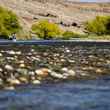



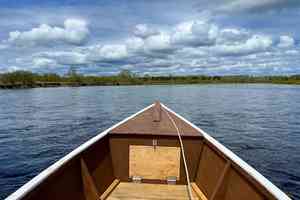


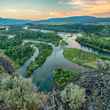

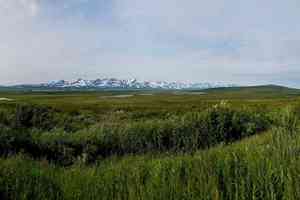

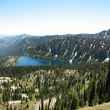











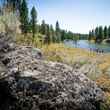
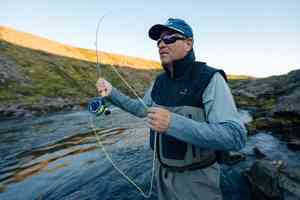



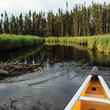
Comments